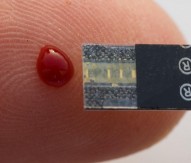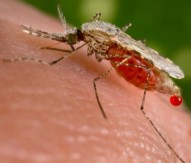
AIDS vaccine candidate successfully ‘primes’ immune system
New research has shown the effects of an experimental vaccine candidate in mice can stimulate the immune system activity necessary to stop HIV infection.
The injection has been designed by scientists at The Scripps Research Institute (TSRI) in San Diego, California, along with researchers at the International AIDS Vaccine Initiative (IAVI) and the Rockefeller University, New York. The findings, supported by a starting investigator grant from the European Research Council, could provide key information for the development of an effective AIDS vaccine.
The research represents a leap forward in the effort to develop a vaccine against HIV, which has so far struggled to elicit antibodies (immune system molecules) that can effectively fight off different strains of the virus. The results are published in concurrent studies in the journals Cell and Science.
In the new investigations, the scientists tested one of these potential proteins, an immunogen called eOD-GT8 60mer, a protein nanoparticle designed to bind and activate B cells needed to fight HIV. The eOD-GT8 60mer was developed and consequently tested in mouse models engineered in the lab of TSRI Professor David Nemazee to produce antibodies that resemble human antibodies.
Using a technique called B cell sorting, the researchers showed that immunisation with eOD-GT8 60mer produced antibody ‘precursors’ with some of the traits necessary to recognise and block HIV infection. This suggested that eOD-GT8 60mer could be a good candidate to serve as the first in a series of immunisations against HIV.
Dennis Burton, chair of the TSRI Department of Immunology and Microbial Science, described the results as “pretty spectacular”. Adding his thoughts, Nemazee said: “The vaccine appears to work well in our mouse model to ‘prime’ the antibody response.”
In a paper published in Cell, researchers used the same eOD-GT8 60mer immunogen but a slightly different mouse model. IAVI Neutralizing Antibody Consortium associate director of vaccine design William Schief said: “The immunogen again launched the immune system in the right direction.”
A concurrent study, also in Science, led by Professor John Moore, of Weill Cornell Medical College, New York City, showed engineered immunogens also triggered immune responses in rabbit models and non-human primate models.
With eOD-GT8 60mer in the running as a potential contributor to an HIV vaccine, the researchers are now investigating other immunogens that could work in conjunction with it. The researchers’ long term goal is to design a vaccine that prompts the body to produce antibodies that bind to HIV and prevent infection.




